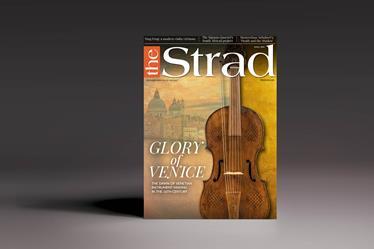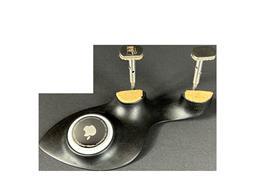Delegates at the Convention on International Trade in Endangered
Species (CITES) have accepted a draft resolution to implement a
so-called 'musical instrument passport' for musicians to present
when crossing international borders. The passport, which will
contain details of all protected species (such as ivory and
tortoiseshell) within the instrument, will be an optional
alternative to the current system of permits.
Under current regulations, musicians carrying such instruments are
often required to have a permit to enter a certain country, and
then obtain another in order to leave it. A passport, which will be
valid for three years, will state that the instrument is ‘owned for
personal use and may not be sold, loaned, traded or otherwise
disposed of outside the individual’s state of usual
residence’.
The draft proposal was originally drawn up by the US Fish and
Wildlife Service (FWS). Tim Van Norman, FWS' branch chief of
permits, estimated that the US would begin implementing the
resolution 'within 90 days, assuming everything goes as planned,
with the whole body of the Convention adopting the resolution'. He
added that FWS would also be releasing guidance documents, such as
application guides and fact sheets, before implementation
begins.
Heather Noonan, vice president for advocacy at the League for
American Orchestras, welcomed the agreement as an aid to
streamlining the complex permit system. However, she stressed, 'It
is essential that a passport be voluntary, and take into account
the time, expense, and practical realities of travelling with
instruments. It is key that steps are taken today and in the
future to educate the music community about how to navigate the
permit rules – both those existing CITES requirements and the
varying domestic endangered species permit rules for each country,
which won’t be covered by the CITES passport concept.' She also
stated that the passport concept would not be 'a silver bullet' in
itself.
Details such as the likely cost of a passport or the duration of
the application process have not yet been disclosed. However, it is
acknowledged that not all of the 178 countries represented at the
CITES conference will be implementing the passport: Australia, for
instance, will not do so because the passport will have to be
hand-stamped rather than electronically processed.
- News
- For Subscribers
- Student Hub
- Playing Hub
- Podcast
- Lutherie
- Magazine
- Magazine archive
- Whether you're a player, maker, teacher or enthusiast, you'll find ideas and inspiration from leading artists, teachers and luthiers in our archive which features every issue published since January 2010 - available exclusively to subscribers. View the archive.
- Jobs
- Shop
- Directory
- Contact us
- Subscribe
- Competitions
- Reviews
- Debate
- Artists
- Accessories
































No comments yet